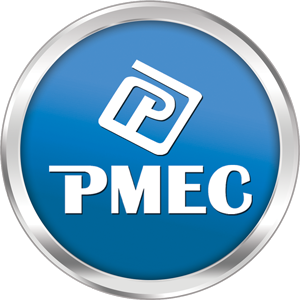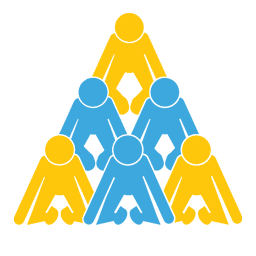Marketeers nowaday facings dramatic change in business models, Trends, Innovative solutions, evolved opportunities, and market dynamics. they face the Pandemic and global economic disturbance that forced a new normal to evolve. people are more adapted to remote connectivity and work. Healthcare and pharmaceutical gained historical profits. logistics and supply chains are stressed out with breakthroughs in techniques and models. required talents and skills differ than before. many jobs will vanish by 2030 and many more evolve. overall, it is so important to swiftly cope with the transformation era we face. From Digital Marketing Strategists, Marketing Leaders, eCommerce teams to the CMO, the marketing function is navigating a period of exponential change. Marketers need new insights to support their brands, new tools to lead with purpose in an ever-changing landscape, and new perspectives to serve their clients more effectively. This Development Program for Marketeers focuses on giving you the opportunity to obtain the required transformational skills and competencies for high marketing performance. Our Marketeer Development Program will tackle standard qualities for Marketeers, focusing on filling individual evolved skills and capabilities gap, using blended techniques for assuring high learning curve and being an effective companion along the journey. Standard Marketeers qualities must consider the following pillars.
Module 1: Marketing Strategies and Planning
- The Marketing Mix
- Strategic Positioning
- Situational Analyses
- Customer Segmentation
- Pricing Strategy
- Product Lifecycle Management
- Market Development Strategies
Module 2: The Customer
- Market Segmentation
- Customer Personas
- Customer Personality Types
- Understanding Value: How it is created and how it moves
- Key Account Management
- Dealing with Organisations
- Behavioural Psychology: Why customers do what they do?
Module 3: Customer Focused Management - Value Creation and Capture Strategies for the Digital Age
- The Vision and Mission of a Customer Focused Organisation
- Case Study: Benchmarking World - Class Customer Service Companies
- Supervising the Four Personality Styles
- Practical Exercise: Determining your Management Style
- Dealing with Customers as Individuals
- Coaching and Mentoring Techniques
- The Impact of Stress on Individual and Team Performance
- Using Social Media to Engage with Customers
Module 4: Strategic Community Relations - Developing Successful Community Partnerships for Better Business
- Understanding the Communities you Operate In
- Managing Communities’ Expectations
- Defining the Corporate Community Involvement Mission
- Assessing Impacts and Pre-empting Risks
- Integrating Community Involvement into the Business
- Reputation Management
- Capacity Building
- Practical Steps for Community Engagement
- Overview of Different Types of Community Programmes (community-driven projects, corporate giving, social contribution projects, etc.)
- Reporting Corporate Community Programmes
Module 5: Endorsed Service Quality and Excellence - Beyond Customer Service
- Quality is in the Eye of the Payer
- The Pursuit of Value, What is it (really)? How do we create it?
- Inside the Mind of the Customer – Truth and Lies
- Inside the Mind of the Customer – The Irrational Purchaser
- Behavioural Economics – Why (almost) everything you knew about buying and selling is wrong?
- Inside the Mind of the Customer – Why “Do nothing” is such a powerful driver?
- Inside the Mind of the Customer – The Values “Iceberg”
Module 6: Market and Competitive Intelligence Master Class
- Benefits of Market and Competitor Intelligence
- Types of Market Intelligence
- Types of Competitor Intelligence
- Benchmarking the Competition
- Converting Data into Market Intelligence
- Data Analysis to Identify Trends
- Intelligence capture systems
- How to Use Market Intelligence to Innovate More Effectively
Module 7: Client Management Strategies for Retention & Growth
- The True Cost of Client Churn
- How to become a Client-Focused Organisation?
- How to Understand and Use the Client Portfolio?
- How to Create Genuine, Compelling and Lasting Value for Clients?
- The Psychology of Influence and Persuasion and How to be authoritative
- World-Class Communication Skills
- Using Social Media to Dialogue with Clients
- Implementing a Kaizen System for Continuous Improvement
Module 8: Product Management Frameworks
- Product management framework
- Product manager’s role
- Success factors in product management
- Identifying and managing stakeholder expectations
- Innovation frameworks
- Reporting framework
- Product portfolios and product roadmaps
- Opportunity costs in product channels
Module 9: Researching and Planning
- Forecasting sales volumes and revenues
- Developing financials for the business case
- Recognizing customer needs and product requirements
- Value engineering products to the market price points
- Developing pricing strategies
- Discounting options
- Developing the scope of a new product or service
- The new product launch playbook
Module 10: Agile Product Management: Bringing Profitable Products to Market
- Establishing quality criteria and management
- The agile delivery triangle
- Types of a project lifecycle
- The agile process and planning techniques
- Estimating the time required
- Burn-down charts for delivery control
- Quality tools and techniques
Module 11: The Strategic Significance of Innovation
- Why Innovate? - The Strategic Relevance of Innovation
- Complexity and Non-linearity in 21st Century Business Development
- When and How Disruptive Innovation was First Introduced?
- Differences between Enabling Innovation and Disruptive Innovation
- When is a Disruptive Innovation, an appropriate strategic approach?
- What can we learn from the experience of successful disruptors?
- Deciding which Innovation – enabling or disruptive?
Module 12: Disruptive Innovation - Managing Radical Change for High Growth
- Assessing the Potential Impact of a Disruptive Innovation
- Innovation in Product and Service
- Innovation in Supply Chain Design and Relationships
- Innovation in Business Model and Organisational Structure
- Corporate Incubation – How to Upscale a Viable Disruptive Innovation?
- Preparing Your Teams for Disruptive Innovation
Module 13: Strategic Brand Positioning and Marketing
- Brand definition, brand v product comparison, examples of brand architectures
- Why do brands matter, what can be branded?
- Brand assets, brand strengths and brand values, what is brand management
- Definition of brand equity, creating brand equity through awareness, image and associations
- Designing appropriate product category structures – using the CBS (Category Breakdown Structure)
- Key aspects of strong brands (performance, image, consumer judgments, consumer emotions, consumer rationale, brand significance, overall resonance with customer)
- The essentials of brand positioning and developing a strong position
- Identifying core brand associations and auditing brands
Module 14: The Anatomy of a Marketing Plan
- Lifecycle Management
- Product (Service Positioning)
- Budgeting
- Routes to Market
- Propositions by segment
- Communications Plan




